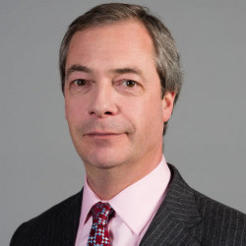Nigel Farage, the leader of Ukip, has said lobbying charities like Oxfam should not get government funding.
The Ukip leader was speaking at an event at the Institute for Government this week when he said that household names such as Oxfam, Greenpeace and the RSPB all receive “the lion’s share” of their income from either national or European government.
“When you drill down and look at how things are funded you discover that the few bob that you gave outside Charing Cross station isn’t actually how they are funded. They are run a secretariat of extremely well paid people and they are funded by government.” He said.
Last year 44 per cent (£162.1m) of Oxfam’s income came from government or public authorities. One quarter of its income came from donations and legacies (£92.2m) and just under a quarter from trading activity.
The RSPB received 51 per cent of its income (£63m) from voluntary sources and just 16 per cent (£20m) in grants from government or other public bodies.
Farage added that he didn’t want to shut Oxfam down but that: “Given the influence these organisations have over public opinion it is a fairly bizarre state of affairs to have the government effectively funding the organisations that lobby it.
“I think that relationship is much too close. It is unlikely to give us the level of debate that should be desired.”
Farage said that as an MEP had been surprised that Greenpeace did not criticise the EU’s fishing quota policy, which has led to dead fish being thrown back in the sea, in a “stricter” way until “I saw the very large sums of money that they get from the European Commission”.
A Greenpeace spokesman said: “We take no money from any government including the EU, so he must be mistaken.”








